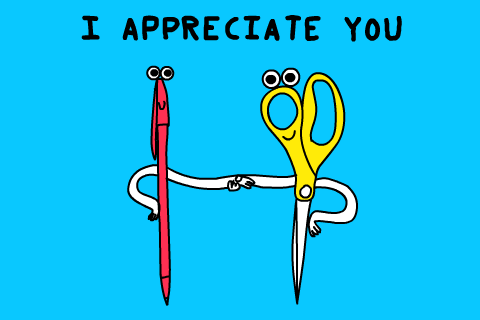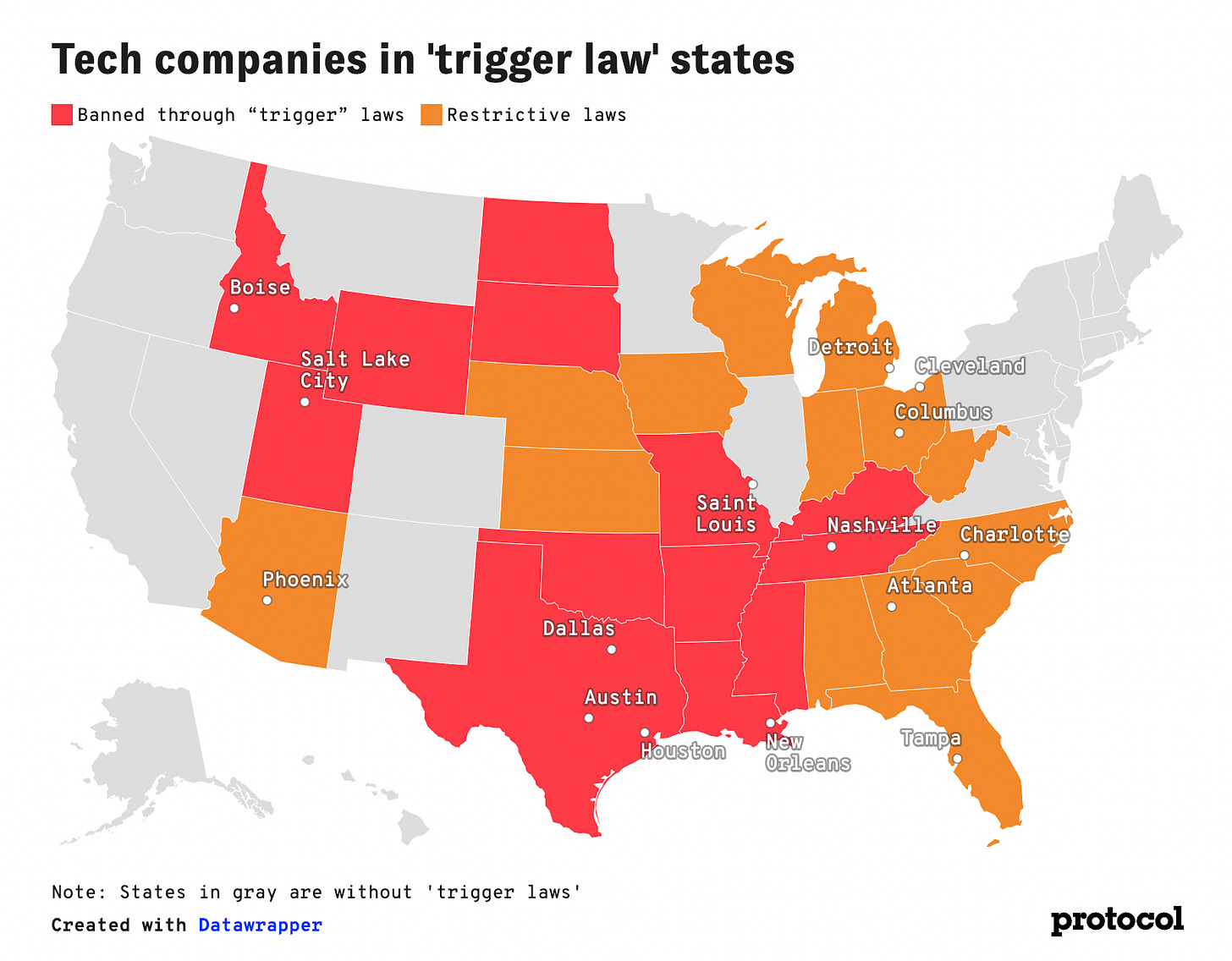A New Era In The #HowWeWork Revolution
We’re living in a state of great uncertainty, after Covid, here comes an economic downturn and War in Europe … Impossible not to expect major changes in how people behave during times like this. This why I found it so interesting to dive in the Workmonitor 2022 study from Randstad, who surveyed 35k people and asked them about their perception of work.
It might be just a photo, which will quickly fade into something very different depending on how the global situation evolves. Or it might be the new normal, or even just the beginning of an even stronger trend.
Hard to tell, but nonetheless super interesting 👀
This is probably one of the biggest concerns business leaders should have : the combination of a generational shift in what (most) employees want, and a complex situation, due probably to gigantic amounts of money invested in private companies, where the best talents are becoming very very rare and have insanely high expectations because they have a lot of choices ! 🤷♂️
We are at the beginning of understanding the impact on the value of an entreprise asset of the mastering of recruitment costs. This is a brand new era where we will see immense discrepencies between the best employers and the worst. It will become a massive mistake to not take into account “people” KPI’s in the coming years. 🤓
Find the whole post of Romain Vidal, co-founder of Teampact Ventures here 👈
Speak Up 📣 Should Work Really Make You Happy ?
A former headhunter, Julia de Funès is now a philosopher. Her credo, she is anti-conformist and hates everything that looks like a process.
"Burn out, loss of meaning, work stoppages, massive employee disengagement have been multiplying for years. We have had to admit that there has been a "happiness" trend in recent years, which has never made employees happy, quite the contrary! The Covid-19 period has at least had this merit in the general slump: to prove to what extent the well-being of employees could not be found in this perky conformism and this standardized "coolness" but, on the contrary, in the individualization and autonomy of employees.
But isn't the goal always the same: well-being at work? Is it not the means to achieve this that have changed?
I think that making well-being an end in itself is the surest way to miss it. When are we happy? When we have obtained something, met someone, or succeeded in an action. In other words, happiness is more a consequence than a condition. At work, people need money, recognition, meaning and autonomy (from which well-being is directly derived).
Can't we talk about a lack of freedom and trust?
This changes with teleworking because managers are forced to trust, they no longer have employees under their permanent eye, so they are forced to let go of each other's work. If some managers find it difficult to trust, and still remain in a logic of pure control, many nevertheless realize the effectiveness of trust! It is not because it is philosophically commendable to talk about trust, but because it is profitable! Trust someone and see how much that person feels invested by the trust received and wants to prove himself worthy of it! A gesture, a word, and the power of the person to whom you give your trust is multiplied by ten. Without falling into angelism, because there will always be profiteers, trust is nevertheless a guarantee of efficiency and this is why it has its place in modern management.
Read on this link her interview to La Tribune (paid & in french) 👈
Data 📊 Should You Really Quit That Job Of Yours? 💔
With resignations hitting a record high, « the Great Resignation » has never seemed so accurate. But is grass that much greener elsewhere?
A recent study showed that 7 out of 10 millennials regretted quitting their job during the pandemic. And years later, employees who quit were often less happy than in the first place. What should you do if people start leaving in droves? Act upon 3 levers:
🗣️ Voice: can you get people to voice their discontent and hope to make a change rather than just quitting? ➡️ Psychological Safety
💜 Loyalty: how do you get people to feel loyal to your organisation and its members? ➡️ Belonging
🕸️ Job embeddedness: aligning people’s core values with their job is a great way to make them stay. And don’t forget that employee benefits are a great way to reflect your values! ➡️ Culture & Values
Want to enter the discussion? Meet our Data Lead Sarah Jallot (Teampact Ventures) under her post here (in 🇫🇷).
Trend 🌊 Employers Embrace Workplace Wellbeing
Wellbeing in the workplace has often been an incidental add-on, with individual interventions on encouraging greater physical activity and healthy eating, such as the provision of fruit in the canteen, smoking cessation sessions or subsidised gym membership.
Yet there is growing discussion of the need for approaches that extend more broadly to address mental wellbeing, and go deeper to tackle underlying structural causes of workplace stress rooted in how organisations are managed.
One reason is research on the links between physical and mental health and productivity. Exercise can improve mental wellbeing, for example, while physical symptoms such as backache may be proxies for underlying mental health concerns. Professor Carol Black, a doctor and UK government adviser on work and health, cites parallel concerns about the “great resignation” of older, more experienced staff who are leaving, spurring fresh reflection on how to keep them. “Health and wellbeing have gone really up the agenda of government and industry,” she says.
Cary Cooper, a professor of organisational psychology at Manchester university, says rigorous studies are rare. His own research, backed by discussions with the National Forum for Health and Wellbeing at Work, a network of senior UK executives that he oversees, points to the need to tackle the underlying structural reasons for employee stress, frequently rooted in poor management practices.
He argues that reduced workplace stress and improved productivity is linked to factors including autonomy, a sense of purpose among staff and empathetic management. “It’s all about the line manager — from the shop floor to the top floor,” he says. “They need to have interpersonal, social and empathetic skills. But we promote them today based on technical expertise. In the world we are going to, there has to be parity of people skills and technical skills for managers.” Read more in the FT this week
News 🗞 Corporate America Braces For End Of Roe
A leaked draft opinion suggesting the US supreme court may overturn the landmark abortion rights decision Roe v Wade has renewed concerns over the ways US law enforcement could ask tech companies to hand over Americans’ data if they were to prosecute individuals getting or providing abortion services. Tech firms and data brokers already collect, store and often sell years’ worth of information on their users. There are few federal regulations that protect such data, making the information, which includes data on location, internet searches, and communication history, extremely valuable and easily accessible to law enforcement.
In the meantime, tech companies are mobilizing for their employees. In recent months, Apple has offered to cover medical expenses for workers in Texas who have to travel out of state to seek abortions. Salesforce has offered to relocate workers from the Lone Star State, where a restrictive abortion law took effect this year. And recently, Amazon said it would cover $4,000 in travel costs for U.S. workers seeking medical care, including elective abortion.
Uber and Lyft said they’d cover legal fees for drivers who face legal trouble in states with restrictive abortion laws. Abortion-related travel coverage and relocation will become key issues for tech companies in the wake of Roe v. Wade. Companies including Yelp, Match Group and Bumble have already promised to reimburse workers who travel for abortions.
Dozens of tech companies are headquartered in states prepared to ban or heavily restrict abortion, and almost every big tech company has some presence in those states. Individual workers may choose to leave a state — which Slack said it would help with — but the issue is trickier for companies. It’s too early to determine whether relocation would be feasible in most cases.
The Nugget 🍪 What Is the Metaverse, Exactly?
To hear tech CEOs like Mark Zuckerberg or Satya Nadella talk about it, the metaverse is the future of the internet. Or it's a video game. Or maybe it's a deeply uncomfortable, worse version of Zoom? It's hard to say.
It's been nearly six months since Facebook announced it was rebranding to Meta and would focus its future on the upcoming “metaverse.” In the time since, what that term means hasn't gotten any clearer. Meta is building a VR social platform, Roblox is facilitating user-generated video games, and some companies are offering up little more than broken game worlds that happen to have NFTs attached.
Advocates from niche startups to tech giants have argued that this lack of coherence is because the metaverse is still being built, and it's too new to define what it means. The internet existed in the 1970s, for example, but not every idea of what that would eventually look like was true. The rest of this great article on Wired.





